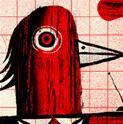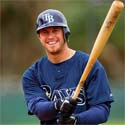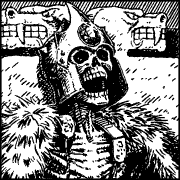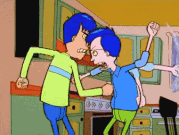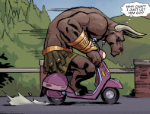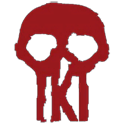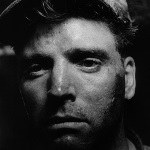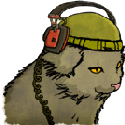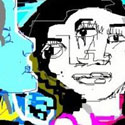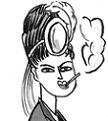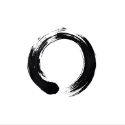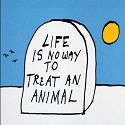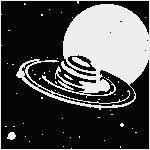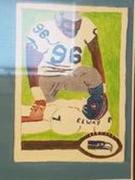|
Prolonged Shame posted:1) Winters Heart - Robert Jordan April books: 30) The Golem and the Jinni - Helene Wecker: I loved this. It was a really interesting take on two somewhat ignored mythological creatures and seeing their points of view was very cool. I feel like the ending could have been a little more solid, but I think she was keeping her options open for a sequel. I recommend this if you like light historical fantasy. 31) The Hunchback of Notre Dame - Victor Hugo: Not bad and I understand why it is considered a classic, but man can Hugo make you hate his characters. I pitied a few of them but I didn't like any of them. Maybe the goat. 32) Roots: The Saga of an American Family - Alex Haley: Despite the controversy surrounding this book I still really liked it. Parts of it were heartbreaking. It was well written, except that Haley, like many male authors, is not as good at writing female characters as he thinks he is. 33) Treasure Island - Robert Louis Stevenson: This was a reread. I read this as a child and was curious to see if my impression of it was different as an adult. Suffice to say: yes. It's definitely a children's classic. 34) King John - William Shakespeare: Not his best work. I'm glad to be done with the histories. 35) Under the Banner of Heaven: A Story of Violent Faith - John Krakauer: I always read Krakauer with a grain of salt and this was no exception. He has a clear agenda with regards to the Mormon church. Nevertheless, it was well researched and informative, as his work usually is. 36) A Memory of Light - Robert Jordan and Brandon Sanderson: Loved it. I thought it was a great end to the series. It was a little bittersweet to finish it but I think I'll get a lot more reading done now that I'm not forever plowing through an 800+ page Wheel of Time book. 37) One Life at a Time, Please - Edward Abbey: I'm a big Ed Abbey fan and this did not disappoint. 38) The Cuckoo's Calling - Robert Galbraith AKA J.K. Rowling: I was cautious going into this one as I hated The Casual Vacancy, but this was way better. It's no Harry Potter, but it's a decent little mystery. Definitely something I'd pick up at the airport before a long flight. Overall: 38/100 Sub-goals: Presidential biographies: 4/12 Books over 600 pages: 9/15 Non-fiction books (not counting prez bios): 6/20
|
|
|
|

|
| # ? May 29, 2024 03:31 |
|
thespaceinvader posted:30: Hammer of God by Karen Miller is next. Intrigued to find out how the series concludes. Then probably more Larry Correia. 30: Hammer of God... drat. DAAAAMN. Good book. Really good. I thoroughly enjoyed it. I was genuinely scared for the characters at the appropriate moments, genuinely cared about their plights and problems - and despite it being a little under-described, really enjoyed the magic system. A++ would read again. Not sure what's next.
|
|
|
|
49. Devil in the White City - Erik Larson I thought the stuff about the expostion was way more interesting than the murder stuff. Larson talks about juxtaposition, but it feels like he included the H. H. Holmes stuff to get people's attention. It's a good read, a solid non-fiction book. 50 - The First Dayas - Rhiannon Frater Ranked on goodreads as one of the better Zombie novels out there. I'm getting tired of zombie books, and ultimately this one was pretty mid-range. It doesn't add a whole lot to the genre, but it doesn't contribute much either. Zombie-obsessed readers should enjoy it well enough, but it isn't something to really seek out. 51. A Walk in the Woods - Bill Bryson I really loved this book. I am not really big on the outdoors, and I've never been camping, but this book makes the concept seem at least a little bit appealing, which at the same time recognizing that it is hard work. Bryson's voice in the book was entertaining, even with the 'dad-humor'. Also lots of interesting snippets of information about locations along the way. Good stuff, I want to read more books like this. 52. The Tourist - Olen Steinhauer A pretty run of the mill spy novel. One of the things i appreciate is that it isn't about fights and explosions and gadgets. The main character is just doing his job, gathering intelligence and trying to put the pieces together. Don't know if I'll be reading the sequels, but I certainly don't regret the time spent reading (listening to) this. 53. Jonathan Kellerman - Mystery I needed something really quick and easy, and my 'to read' pile in the living room is getting a bit tall. Kellerman isn't, by any means, my favorite mystery or thriller writer, but he spins a decent story. It was entertaining, but I feel in no way transformed by the narrative. It's just cheap, easy fun. 54. Into the Wild - Jon Krakauer While "A Walk in the Woods" and "Wild" really glorify and romanticize the idea of going out into the wild unprepared, and the amazing experience of coming out on top, "Into the Wild" is a reminder of the necessity of restraint at times when it comes to tangling with nature. It tells a fascinating story, but even now I'm not sure if it is a story of hurbris and stupidity, or a tragic story of adventure gone wrong. Kinda like Grizzly Man without the bears.
|
|
|
|
April recap: 25. Allegiant by Veronica Roth- Third book in the Divergent series. I found this one much better than the second, but by the end I realized not much happened. This series could have been contained to two books. I'm not sure why everyone is set on trilogies these days. 26. A Prayer for Owen Meany by John Irving- This book is magnificent and hilarious. I'm a huge John Irving fan, so I'm not sure why it took me so long to read it, but I loved it. I definitely recommend it. 27. The Assassination of Abraham Lincoln by Stephen Carter- Based on the “What if? Question of if Lincoln had survived the assassination attempt, would he have been impeached? The question is fascinating, but unfortunately this author's characters aren't compelling and I find his language stilted. 28. Stiff: the Curious Lives of Cadavers by Mary Roach- If anyone isn't familiar with her writing, she tends to take one subject (in this case what happens to people after death) and write about it from different scientific points of view. I found this book fascinating, especially the discussion of bodies donated to science. The whole book is also pretty funny. 29. The Pillars of the Earth by Ken Follet- I find the subject of this book fascinating, but the descriptions of architecture get really boring. Additionally, there is a very graphic (two pages!) rape which is brought up over and over again along with many other rapes that don't get quite as much attention. That said, three of the main characters are very well-written, but I was so sick of hearing about rape by the end of this book that I was very annoyed.
|
|
|
|
Total: 14/52 Female authors: 5/20 Non-fiction: 2/10 Goodreads. I somehow only managed to read two books this month and neither of them was particularly good. Angry Ghosts takes a while to get going, but once it does it's quite enjoyable. I can't say that it had any great impact on me, but it was decent and I'll probably read the sequel eventually. Solid setting, interesting characters. My major criticism would be that the antagonists are barely even in the book (although they may play a larger role in the next one). Their absence wasn't really a problem, the story certainly works fine without them, I just thought they were interesting and would have liked to hear a bit more about them, rather than having them almost entirely as an unseen and unknown threat. Brave Men Run was a bit too YA for my tastes, but not the worst thing I've ever read. The setting is basically just an X-Men ripoff where mutants are just beginning to show up, but less about super heroes and more just about a small group of teenagers. Also it pretty much feels like half a book. Not a lot happens through most of this book and the primary antagonist basically just kind of disappears at the end, so I was really hoping that the second book would bring it together a bit better. Unfortunately the second book was worse than the first one and I stopped reading a short way in. I am almost finished reading Zombies vs. Unicorns though, which is a collection of short stories, half about zombies and half about unicorns, and I'm enjoying the unicorn ones. But I find zombies pretty tedious and none of the stories I've read so far have changed my mind on that. Tiggum fucked around with this message at 03:27 on May 1, 2014 |
|
|
|
Fellwenner posted:13) The Recognitions, by William Gaddis. April! Only read one book this month, but I'm re-reading Worm and playing video games for a bit (ESO is pretty fun!). 21) JR, by William Gaddis. A satire on capitalism and corporate greed, this was a wonderful book with lots of really hilarious and absurd moments. Jonathan Franzen wrote an essay on how this was difficult to read, and to a certain point I suppose I can agree - dialogue is unattributed, punctuation is scarce, and time skips aren't telegraphed - but the characterization is good enough that this really isn't an issue. Fellwenner fucked around with this message at 09:11 on May 1, 2014 |
|
|
|
quote:01. The Stranger - Albert Camus 19. Moby-Dick - Herman Melville Great! The cetology parts weren't as bad as some made them out to be. Ishmael is a great narrator. 20. I'm Proud of You: My Friendship with Fred Rogers - Tim Madigan Ehh. Mostly about the struggles of the author and how his life was affected by knowing Mr. Rogers. The author originally published his writings in newspaper and I think it fits better in that format. I wasn't really gripped by this book and I would struggle to recommend this book to someone unless they're super obsessed with Mister Rogers and/or deeply religious. 21. The Snow Leopard - Peter Matthiessen Must read for anyone with an interest in nature. Some of the specifics about Zen were lost on me, but I still found Zen and mountains to be a good pairing. I'm excited to read more Matthiessen. DannyTanner fucked around with this message at 17:29 on Jul 25, 2014 |
|
|
|
Fellwenner posted:April! Only read one book this month, but I'm re-reading Worm and playing video games for a bit (ESO is pretty fun!). I'm dead impressed you managed to clear it in just a month. It took me much longer, and I actually posted it in the "books you didn't finish" thread at once point. Are you going to keep on? Next chronologically is Carpenter's Gothic, his "attempt to reach the man in the airport."
|
|
|
|
Mr. Squishy posted:I'm dead impressed you managed to clear it in just a month. It took me much longer, and I actually posted it in the "books you didn't finish" thread at once point. Are you going to keep on? Next chronologically is Carpenter's Gothic, his "attempt to reach the man in the airport." Yep! I have some sci-fi and a western I'm going to read first, though.
|
|
|
|
18) Life And Death Are Wearing Me Out by Mo Yan Utterly charming and Chinese as hell; despite all the similarities on paper to 100 Years Of Solitude, this book has an incredibly different style and mood. Mo Yan managed to write himself into this book as a self-insert and make it just work so, so well. There's a hell of a lot to say about this book; I only briefly touched on it on Goodreads but I encourage anybody who wants to read a bizarre dark comedy about reincarnation and modern Chinese history to read this dang book. longer goodreads review 19) The House of The Spirits by Isabel Allende Eh. After Life And Death, I wanted to read something I'd had on my bookshelf forever and this, ehhhh. The thing with a really good magical realism story, the thing with a really good story about family conflict, is you need to have characters and Allende just kind of filled this book with two dimensional caricatures instead of fully realized people doing their thing. It didn't help that she is a student of Gabriel Garcia Marquez and he died halfway through my reading of this; I blame it for only finishing three books this month. longer goodreads review 20) Silence Once Begun by Jesse Ball Best book of the month. gently caress. This is a treatise on lies, an exploration of deception, and it completely turns the concept of a mystery on its head - from the very start of the book, we know whodunnit, we know the main character is innocent, AND it's set years after the main crime in the book was completely made public, yet it is still the tensest book I've read in a while. longer goodreads review 20/60 Well, at least only 1/3rd of my books were written by white men this month. I'm most of the way through The Inconvenient Indian right now and enjoying the hell out of it, despite it being a total bummer trip. I don't know what my theme for May is going to be yet; maybe I'll just read some dumb poo poo and pad it out with short stories and not stress out so much and maybe even get a dang job that gets in the way of my reading time.
|
|
|
|
April. 22. The Adventures of Tom Sawyer. Mark Twain. Always a classic, a little bit hard to read. 23. Chasm City. Alastair Reynolds. Slow book but quite engaging. 24. Maskerade. Terry Pratchett. Funny but not as interesting as the other books, maybe because of my ignorance about all things operatic. 25. The Naked Sun. Isaac Asimov. The setting is great but you can't help to notice how aged this is. 26. Assassin's quest. Robin Hobb. Really slow, the story could easily been summarized in a couple of paragraphs. 27. Behemoth. Scott Westerfeld. Quick read. Fun story with some cliches, but they don't distract much. 28. The Poisoned Crown. Maurice Druon. Still pretty good. On par with the second book of the "Accursed Kings". Talas fucked around with this message at 16:52 on May 1, 2014 |
|
|
|
Strong Mouse posted:1. Worm wildbow (J McCrae) I have read 16 of my challenge of 75 books. (8 books behind schedule according to Goodreads) My goodreads profile in case you want to see my reveiws of the books I have read. Some reviews are longer than what I have here, some are shorter. It really depends on the mood I am in when I right each thing respectively. 13. The Martian Andy Weir - I really liked this book. It is pretty much an apocalyptic log from somebody who accidentaly got stranded on Mars and what he is trying to do to live long enough to possibly be rescued. I suggest you go read this, as it really is interesting to see what luck, ingenuity, and balls can do for you. 14. His Majesty's Dragon Naomi Novik - A great book that I first heard about when my friend was reading it in highschool. I never got around to reading it then, but I am glad that I finally have. This is a wonderful bit of alt-history/fantasy where dragons are real and countries around the world have domesticated and bred them to be able to used for war. This book takes place during the Napoleonic Wars when a Navy ship captain ends up being imprinted on(?) by a dragon and has to change his life and become an aviator. Trials, tribulations, dragons, and wise-cracking happen, and this is a good book. I have started the second one, but it isn't quite as good so far, so who knows when I'll finish it. 15. Cofessions of a D-List Supervillian Jim Bernheimer - A fun, short (~150 pages) book about a supervillian (Named MechaniCAL - 1 guess what his first name is) who ends up working with heroes to save the world. It's a lot deeper than that, but anything else just gives stuff up. I started reading while eating dinner and was done by 10:30 with a few breaks in the middle. I hope Mr. Bernheimer writes a few more stories in this world, because he hints at a lot of stuff throughout. 16. The False Prince Jennifer A. Nielsen - Another good book that didn't take too long to read. I don't really know why I am having trouble reading long books right now but  . I liked the main character, though most of the rest of the characters didn't get too much in the way of development. The plot was good and there were some good twists. I always say I am planning to read the next book in a series soon, I and I do, it just doesn't always happen quickly... . I liked the main character, though most of the rest of the characters didn't get too much in the way of development. The plot was good and there were some good twists. I always say I am planning to read the next book in a series soon, I and I do, it just doesn't always happen quickly...So it seems I am having trouble finishing books if they take longer than 2 or 3 sittings, which leads to me having a lot of books only partly finished. I also had a few days where I couldn't do any reading what so ever because I procrastinated on my calculus homework and had to do all of it in a very short time. I have a few books that have my interest right now, and I am going to really try finishing them before I start summer break later this month, so I have a good start on my summer reading (which tends to be some of my lowest output reading of the year, but with how this year is already going, it may become my highest output...) and catch up to my goal.
|
|
|
|
thespaceinvader posted:Not sure what's next. 31: The Innocent Mage by Karen Miller. Decent enough, but the protag's annoying accent is already starting to hack me off, and I could swear blind I've actually read it before way back when. I'll find out, I guess.
|
|
|
|
April Overall: 27/70 Non-fiction: 5/20 Lifetime Reading List: 2/10 New Female Authors: 4/12 Non-Europe/USA countries: 1/5 Gravity's Rainbow: 0/1 21. The Acts of King Arthur and His Noble Knights by John Steinbeck This was fantastic; it starts out as just a modern translation by Steinbeck but after awhile he starts adding his own flavor to the stories, and that's when it really becomes good. It was disappointing that it ended so early in the cycle (it ends just as Lancelot and Guinevere just get together, so you don't see Mordred or the Grail quest or any of that cool stuff) but I have always been interested in the Arthurian mythology and it has been years since I read The Once and Future King so I wanted to refresh my memory on it. It is also much funnier than I thought it would be, Steinbeck really knows how to riff on some of the crazy logic in the original stories. 22. The Quarry by Ian Banks This was okay. I got it as a kindle daily deal, so maybe it wasn't representative of his other work. It also could just be that I wasn't really in a place to really internalize the whole "dealing with a family member imminently dying of cancer" thing. Also the weird MMORPG subplot seemed totally tacked on. 23. How to Live Safely in a Science Fictional Universe by Charles Yu This was actually a much better story about dealing with the loss of your father. It uses the whole time travel and meta-story stuff beautifully, and was really funny and sweet to boot. 24. Alice's Adventures in Wonderland by Lewis Carroll I read this in basically one sitting after recovering from spending 24 hours creating a web site as just some nice filler to unwind. It is a classic so there is not much to say, but I really love the little language and logic games Carroll plays. It was a nice way to spend an afternoon. 25. Black Dahlia & White Rose by Joyce Carol Oates This was great and I want to read some of her other stories. The title story was especially great, juxtaposing Marilyn Monroe (the White Rose) and of course the infamous Black Dahlia to speak about how women (especially in Hollywood) were viewed at that time. The rest of the stories in the collection were mostly about older women dealing with some type of mundane (but subtly foreboding) situation and were generally really intriguing. 26. Crash Gordon and the Revelations from Big Sur by Derek Swannson So I read the first book in this series a few years back and it was a total clusterfuck. The first half is a fairly interesting coming of age story laced with a bunch of literary references and conspiracy theories, until about halfway through the novel when a character show up to give a 400 page info dump of every major conspiracy theory for the past 50 years before the novel just ends. I was curious how this one would follow up (and honestly the first book was informative even if it was a disaster). This book is still heavy on the random exposition about popular conspiracy theories but it does a better job of spreading them throughout the novel while maintaining a consistent (if somewhat boring) narrative. Honestly this author should just create some kind of comprehensive guide to conspiracy theories of the 20th century and I would read it, although I think he wants to keep writing kinky sex scenes, so that might not work out entirely to his liking. 27. The Nonexistant Knight by Italo Calvino This was fantastic, probably my favorite Calvino to date. I usually find his stuff a little dry (possibly due to the translation) but this one was genuinely really funny. I got a few more of his novellas as part of another kindle sale, so I am looking forward to reading those. -- I am making good progress; I am not really worried about my total goal (especially because at this rate I am going to blow it out of the water) but my other general goal of branching out my reading habits has been going pretty well, although this month was mostly just reading stuff I thought looked cool. The one area I really want to pick up in is books from other countries/cultures, but I need to purchase or acquire some that I have gotten recommendations on. That might be a goal I focus on more for the second half of the year since I have a pretty solid backlog of other stuff, and I really want to hit the non-fiction more over the coming months.
|
|
|
Guy A. Person posted:
Oh neat! Did you read my King Arthur thread and get inspired, or just independently?
|
|
|
|
|
May update. Read a few comic trade paperbacks, which should help me make my goal, but that's not why I read them. Still behind, too. 6. Max Barry - Lexicon - My own book club pick for the month. Won't win a Nobel or anything but I enjoyed the premise a lot. Don't want to say too much lest I spoil it for potential readers, but it's a quasi-thriller based on language. 7. Bill Willingham, et al - Fables, Vol. 1 - Decided to read some of this after playing Telltale's excellent The Wolf Among Us episodic game, which is based on it. Fairy tale characters, New York City and environs, adult themed (in the dark-and-grimy sense, not the pornographic sense). Good introduction to the series, too short as all comic trades are. 8. Bill Willingham, et al - Fables, Vol. 2 - Really liked this. 9. Bill Willingham, et al - Fables, Vol. 3 - Everyone but me seems to think this was a step up in quality. I thought it was a step down. The first two are full, self-contained story arcs; this one feels like odds and ends thrown together. Fine, but not amazing. 9/30 As always, full reviews on my Goodreads. Really need to read more but between work and other pursuits, making time has been hard lately. In the midst of Fables, Vol. 4 and Haldeman's The Forever War now, with the new book club pick on the horizon.
|
|
|
|
After hitting a natural breakpoint in Hugh Cook's work I dug into a bunch of other books I'd been meaning to read for a while. 16. The Wicked and the Witless by Hugh Cook was another great entry that painted some events in his previous novels in an entirely different light. Lighter on the commentary than normal, it was more of a fun adventure story with a hapless protagonist bounced from situation to situation beyond his control. Given the portrayal of the protagonist in the previous novels, The Wicked has some fun things to say about public image and political manipulation. 17. Random Acts of Senseless Violence by Jack Womack is a story told as a series of diary entries by a young teenage girl as an economic collapse leads to class warfare, societal breakdown, and the disintegration of her entire world. It's bleak and depressing; It's a great book, and a fantastic bummer. 18. Annihilation by Jeff Vandermeer was another great book. Like the rest of his work, Annihilation evokes strong feelings of oppressive paranoia, mystery, eeriness, and creeping unease and dread. This tone, I've found, is unique to Vandermeer and I love it. 19. The Warded Man by Peter V. Brett. I broke my excellent-book-streak with this one, unfortunately. I liked the first three quarters of this one quite a lot. It gave me strong, early-wheel-of-time vibes, and sucked me in with an intruiging setting. The coming of age/origin stories of the three protagonists were interesting, even if the prose was fairly simple and a little bit bland. I'm gonna spoil stuff now. 60 pages from the end of the book, everything fell apart. The three protagonists, who were obviously going to meet up at some point to form their adventuring party of Ranger-Sage-Monk, Healer, and Bard, meet. Their dialogue is terrible, consisting of mostly blunt personal statements of their morals and goals. Perhaps the dialogue was always terrible, but this could be forgiven when the characters were stubborn, arrogant children. As adults, everything feels off. This is my minor complaint. My major complaint involves the story taking an enormous misogynist poo poo all over itself. Brett wants to be GRR Martin with his grim world of violence and rape, but he learned all the wrong lessons. 40 pages from the end of the book the "strong female protagonist", a 27 year old virgin, gets gang-raped by bandits while the weak male protagonist watches. Two days later, after being rescued by the strong male protagonist, the virgin gang-rape survivor jumps directly onto her rescuer's dick. During their terrible sex scene she thinks about how hard she wants to please him, wishes she was still a virgin so she could give herself to him, and tells the man she met the eve of her gang-rape that she hopes he makes her pregnant. She'd been written decently up until this point. It's not a one-off character mistake, as her character spends the rest of her time thinking about her man as the climactic battle rages. I hear the sequels only get worse, so I'm done with this series unless I get my morbid curiousity up. Read the origin story parts, then throw the book in a goddamn fire. 20. The Hundred Thousand Kingdoms by N.K. Jemisin was a pleasant way to wash the taste out of my mouth. It's pleasant and engrossing, dealing with dark subject matter while not being grim and gritty. It's an intruiging, gods-and-magic filled fantasy novel with a well written lady point of view character. It's also got a goodly amount of mystical romance and god-loving, which can be fun.
|
|
|
|
Siminu posted:19. The Warded Man by Peter V. Brett. I broke my excellent-book-streak with this one, unfortunately. I liked the first three quarters of this one quite a lot. It gave me strong, early-wheel-of-time vibes, and sucked me in with an intruiging setting. The coming of age/origin stories of the three protagonists were interesting, even if the prose was fairly simple and a little bit bland. I'm gonna spoil stuff now. Yeah, this was my issue with it as well. Great book up to that point, but the rape scene just sours everything with how unnecessary it is and how poorly it is handled.
|
|
|
|
Hieronymous Alloy posted:Oh neat! Did you read my King Arthur thread and get inspired, or just independently? Actually no, I did not know about that thread! I was inspired by some threads Liesmith did in Trad Games a long time ago but I never got around to reading, I want to work my way up to Le Morte. Also you should read The Nonexistent Knight if you haven't. It is not about Arthur but Charlemagne and some of his paladins but there is questing and it is awesome and hilarious. They mention Excalibur and some of the bigger names like Roland but they are not the focus.
|
|
|
|
1/3 of year update: 1. Kafka on the Shore by Haruki Murakami. I read this book in 2 or 3 days, a heroic feat considering my reading habits. Murakami is the king of fusing the mundane with just the right amount of weirdness. 2. Orsinian Tales by Ursula K. LeGuin. This is a book of short stories set in a fictional eastern-European country named Orsinia. LeGuin acquaints us with its citizens as they live through the turbulent events of the 20th century (there are a few stories set in earlier times). Some of the stories are loosely connected, but all of them can stand on their own. I enjoyed this one a lot. There is a humane streak that runs throughout the whole. 3. The State of the Art by Iain M. Banks is a collection of sci-fi short stories bundled with a novella. Although the titular novella is the most substantive part of this collection, I would advise you to give the accompanying short stories a chance. The shorter stories are shot through with dark humor (to the point that some come off as pranks). It is technically a part of the “Culture” series of books, although not all the material is set in that universe. 4. Inversions by Iain M. Banks. A “Culture” book, without the Culture! Inversions is pretty damned great. Set in a medieval world that is recovering from a major natural disaster, the story follows two characters (a physician, a bodyguard) that are attempting to create political and social change by influencing the regents that they serve. I you’re “in the know” (IE: have read another book in the series), the mysterious origins and motives of the protagonists are obvious. 5. Storm of Steel by Ernst Jünger. This is an incredible memoir about frontline action in the First World War. The sheer insanity, confusion and frenzy of combat are vividly conveyed. It is refreshingly apolitical in its approach. If you have any interest in military history or portrayals of combat, you must read this. 6. The First World War by John Keegan. I’ve always been interested in this conflict, and as the hundredth anniversary approaches I’ve been reading more and more about it. This is a pretty great introduction from the grand-strategy point of view (expect to look up maps and things online if you want to orient yourself at all). I also really enjoyed the write-up of the diplomatic gently caress-ups leading up to the war. If you’re looking into the more nitty-gritty aspects of the war, maybe Storm of Steel or another memoir would be more the thing for you. 7. Hard Boiled Wonderland and the End of the World by Haruki Murakami. Man, I’m not even going to try to explain this one, or even enumerate the genres it’s riffing on. Probably not the best place to start with Murakami. It was good! 8. L’Étranger by Albert Camus (in the original French). A great, short character study of a complete sociopath. 9. Excession by Iain M. Banks. Sci-fi on full blast. If you like weird aliens, advanced galactic civilizations, eccentric artificial intelligences, and convoluted conspiracy plots, THIS IS THE ONE FOR YOU! I cannot get enough of this series. 10. The Business by Iain Banks. “The Business” is my first taste of non-sci-fi Banks(without the “M.”). Through the eyes of an up-and-coming executive, we learn about the inner workings of a mega-corporation. The corporation itself is the book’s most interesting character, with its diverse holdings, democratic promotions system and ambitions of statehood. It wasn’t outright boring, but the protagonist is a fairly transparent (gender-swapped) stand-in for Banks and the ending was a little abrupt. A bit of a let down. Recommend me some good “not sci-fi” Banks! 11. Neuromancer by William Gibson. Yup, I can totally see how this basically created the cyberpunk genre. Even though a lot of it is so dated now, I eventually settled comfortably into the world. Gibson has fun with language, especially the occasionally synesthetic prose that describes the goings-on in cyberspace. So far, so good. My goal was stupidly ambitious so let's forget about that. I also read a bunch of comics but I guess this is a book-book thread. If you scanned my list and think you could recommend me something, I’m open to suggestions! Mahler fucked around with this message at 00:23 on May 4, 2014 |
|
|
|
I guess you like Banks, Mahler? I'm actually reading my first Culture (and Banks for that matter) novel at the moment, Consider Phlebas. I think I'm about 1/4 of the way through and am definitely enjoying it. I could probably see myself ignoring a whole bunch of other stuff on my to-read list and just continue to read more Culture, but I guess I'll see how I feel when I finish. Does his style change much through the series? I usually hate perspective changes but there seems to be enough (enjoyable) content between changes and there aren't many characters to keep track of (so far) that I can deal with it.
|
|
|
|
Mahler posted:
This was the first Murakami I read, and it was absolutely magical - I had no idea what his writing was like, and believe I had read somewhere that he was "the Japanese Hemingway" or something like that (I do love Hemingway, but I can't see where the comparison comes in). This is a much better first book than, say, IQ84. A friend of mine picked up IQ84 and now won't go anywhere else near his other writing, she is so mad at that book 
|
|
|
|
Xik posted:I guess you like Banks, Mahler? Each culture book has its own distinct feel. One of the great things about the series is that it never seems to repeat itself. I started with Consider Phlebas as well, but after having read most of the series, I'd say the better starting point would probably be The Player of Games, Use of Weapons (actually, if you hate perspective changes and not knowing what the hell is going on, stay away from that one) or even State of the Art. Phlebas is by far the weakest and most boring of the one's I've read so far, even though it has some really cool parts A Game of Damage in it. Spadoink posted:This was the first Murakami I read, and it was absolutely magical - I had no idea what his writing was like, and believe I had read somewhere that he was "the Japanese Hemingway" or something like that (I do love Hemingway, but I can't see where the comparison comes in). This is a much better first book than, say, IQ84. A friend of mine picked up IQ84 and now won't go anywhere else near his other writing, she is so mad at that book I had a soft start with Murakami, cuz the first of his I read was Norwegian Wood, which is just a solid coming-of-age type story. Then I read The Wind-up Bird Chronicle and poo poo went off the rails. Mahler fucked around with this message at 06:49 on May 4, 2014 |
|
|
|
Spadoink posted:A friend of mine picked up IQ84 and now won't go anywhere else near his other writing, she is so mad at that book
|
|
|
|
I'm reading a lot of biographies this year. Mostly about cults, apparently. I'm calling it my "fascination with the abomination" year. I dropped off a bit after about February, but the year is young and summer is coming, so I am still hoping to clear 40. Synopsis quotes are from Goodreads. 1. Stolen Innocence by Elissa Wall "Elissa Wall tells the incredible and inspirational story of how she emerged from the confines of the Fundamentalist Church of Latter Day Saints (FLDS) and helped bring one of America's most notorious criminals to justice. Offering a child's perspective on life in the FLDS, Wall discusses her tumultuous youth, explaining how her family's turbulent past intersected with her strong will and identified her as a girl who needed to be controlled through marriage. Detailing how Warren Jeffs's influence over the church twisted its already rigid beliefs in dangerous new directions, Wall portrays the inescapable mind-set and unrelenting pressure that forced her to wed despite her repeated protests that she was too young." This book was disturbing as poo poo but it was heartwarming to know that she got out of there in the end. 2. The Disaster Artist by Greg Sestero "From the actor who lived through the most improbable Hollywood success story, with an award-winning narrative nonfiction writer, comes the inspiring, fascinating and laugh-out-loud story of a mysteriously wealthy outsider who sundered every road block in the Hollywood system to achieve success on his own terms—the making of The Room, “the Citizen Kane of bad movies” (Entertainment Weekly)." I've still never seen the Room, but I really enjoyed the read. 3. Beyond Belief by Jenna Miscavige Hill "Jenna Miscavige Hill was raised to obey. As the niece of the Church of Scientology's leader David Miscavige, she grew up at the center of this highly controversial and powerful organization. But at twenty-one, Jenna made a daring break, risking everything she had ever known and loved to leave Scientology once and for all. Now she speaks out about her life, the Church, and her dramatic escape, going deep inside a religion that, for decades, has been the subject of fierce debate and speculation worldwide." Really interesting exploration of the inside of this apparently supremely hosed-up group. Really recommend it. 4. Escape by Carolyn Jessop "When she was eighteen years old, Carolyn Jessop was coerced into an arranged marriage with a total stranger: a man thirty-two years her senior. Merril Jessop already had three wives. But arranged plural marriages were an integral part of Carolyn’s heritage: She was born into and raised in the Fundamentalist Church of Jesus Christ of Latter-Day Saints (FLDS), the radical offshoot of the Mormon Church that had settled in small communities along the Arizona-Utah border. Over the next fifteen years, Carolyn had eight children and withstood her husband’s psychological abuse and the watchful eyes of his other wives who were locked in a constant battle for supremacy." More about the FLDS, and the events leading up to the arrest of Warren Jeffs from another pair of eyes. Really interesting. 5. The Reason I Jump: The Inner Voice of a Thirteen-Year-Old Boy with Autism by Naoki Higashida and K.A. Yoshida "Using an alphabet grid to painstakingly construct words, sentences, and thoughts that he is unable to speak out loud, Naoki answers even the most delicate questions that people want to know. Questions such as: “Why do people with autism talk so loudly and weirdly?” “Why do you line up your toy cars and blocks?” “Why don’t you make eye contact when you’re talking?” and “What’s the reason you jump?” (Naoki’s answer: “When I’m jumping, it’s as if my feelings are going upward to the sky.”) With disarming honesty and a generous heart, Naoki shares his unique point of view on not only autism but life itself. His insights—into the mystery of words, the wonders of laughter, and the elusiveness of memory—are so startling, so strange, and so powerful that you will never look at the world the same way again." This book is a bit controversial because there's no way to verify whether or not these are really Naoki's words. They could just as easily be Yoshida's words, or his very loose interpretation of what Naoki was saying. Still, I found it a really fascinating potential insight into the world of autistic children and adults. 6. The Time Traveller's Guide to Medieval England: A Handbook for Visitors to the Fourteenth Century by Ian Mortimer "The past is a foreign country. This is your guidebook. Imagine you could get into a time machine and travel back to the fourteenth century. What would you see? What would you smell? More to the point, where are you going to stay? Should you go to a castle or a monastic guest house? And what are you going to eat? What sort of food are you going to be offered by a peasant or a monk or a lord? This radical new approach turns our entire understanding of history upside down." Not really a scholarly book, but a really unique approach to "big picture" learning for the 14th century. I would happily use sections of this in a classroom. 7. The Church of Fear: Inside the Weird World of Scientology by John Sweeney "Tom Cruise and John Travolta say the Church of Scientology is a force for good. Others disagree. Award-winning journalist John Sweeney investigated the Church for more than half a decade. During that time he was intimidated, spied on and followed and the results were spectacular: Sweeney lost his temper with the Church's spokesman on camera and his infamous 'exploding tomato' clip was seen by millions around the world. In THE CHURCH OF FEAR Sweeney tells the full story of his experiences for the first time and paints a devastating picture of this strange organisation, from former Scientologists who tell heartbreaking stories of families torn apart and lives ruined to its current followers who say it is the solution to many of mankind's problems. This is the real story of the Church by the reporter who was brave enough to take it on." A bit more padding in the book than I'd like, but it was interesting to read about his experience in trying to deal with Scientology as a hostile outsider. I don't think he is an especially good investigative reporter at times, but then, neither does he. 8. The Ocean at the End of the Lane by Neil Gaiman "Sussex, England. A middle-aged man returns to his childhood home to attend a funeral. Although the house he lived in is long gone, he is drawn to the farm at the end of the road, where, when he was seven, he encountered a most remarkable girl, Lettie Hempstock, and her mother and grandmother. He hasn't thought of Lettie in decades, and yet as he sits by the pond (a pond that she'd claimed was an ocean) behind the ramshackle old farmhouse, the unremembered past comes flooding back. And it is a past too strange, too frightening, too dangerous to have happened to anyone, let alone a small boy." In a lot of ways, this is Gaiman treading back over thematic territory he has covered. That's just kind of how Gaiman is, though; all of his stories fold over top of one another like any good set of myths. Gaiman's stuff is a bit love-it-or-hate-it, but I definitely love it. It's a short, quick read, and I highly recommend it.
|
|
|
|
Ezzum posted:April: (21/36) May: (30/36) 22. Slouching Towards Bethlehem by Joan Didion - I actually liked this a lot better than The Year Of Magical Thinking. Paradoxically, for a collection of essays, it read more like a collection of short stories, with clear narratives. This narrative quality, coupled with the knowledge that they are indeed nonfiction, gives the stories a certain power and authority. One can also tell from them that Didion is a very creative mind. The person who lent me the book described it as "like Virginia Woolf, just in her associations," and I can totally see that, though of course Didion's prose is substantially toned down from Woolf's. But the connection of ordinary events and people to more complex ideas is extremely interesting and well-executed. 23. Sputnik Sweetheart by Haruki Murakami - I'm still kind of frustrated that I've never read a great novel by Murakami. He's so talented, but with everything he's ever written for me there's always been some sort of hangup, some thing that kept me from really appreciating this. For The Wind-Up Bird Chronicle, one of my primary issues was the length-- I felt it was too long-- but the opposite is kind of the issue here. I felt like he just didn't have enough time in 200 pages to really develop his strange, dream-world. I did like it, though, and it felt more earnest and emotionally fulfilling than his other works, though I don't think it's even close to topping The Wind-Up Bird Chronicle in scope and ambition. 24. Mount Terminus by David Grand - There's a comedian whose name for some reason escapes me at the moment whose schitck is that he says the most insane things in the driest, most deadpan way possible. I wouldn't exactly call Mount Terminus dry or deadpan, but the experience is similar. This is a tale of new inventions, romantic trysts, the First World War, all this dramatic narrative material told in the most detached, almost dispassionate voice I've ever encountered. I do appreciate the thoroughness of the book-- it was written over a period of 10 years and it shows in how expansive and meticulous it is, but I can't get over how distant the narration is from the narrative. 25. The Last Days Of The Incas by Kim McQuarrie - First nonfiction book I've read in a while. Overall pretty good, nice narrative quality. I thought the parts about Hiram Bingham and the other people to discover the Inca ruins but overall I feel like I got a good idea of what happened to the Incas. It was really very sad and kinda made me angry the Spanish Conquistadors and what they did. Especially Gonzalo. gently caress that guy. 26. A Portrait Of The Artist As A Young Man by James Joyce - Now having read almost every major work of Joyce's, I think I can say that this is my favorite. It is probably his most imperfect book, and most uneven, (the bits with the sermon in particular got a bit tiresome and lengthy) but it is also his most blatantly passionate. Ulysses was a book that I more respected than liked, but there is such soaring emotion and power in Portrait that it was basically impossible not to feel strongly about it. Great novel, definitely deserves the accolades it gets. 27. Pilgrim At Tinker Creek by Annie Dillard - I think Eudora Welty said it best, "I honestly do not know what she is talking about at... times. The only thing I could swear to is that the writing here leaves something to be desired." 28. Sense and Sensibility by Jane Austen - I personally liked this a lot better than Pride And Prejudice, but I can't really put my finger on why. They're honestly extremely similar books, and having now read more than one Austen book, there are clear archetypes that start to emerge. I wonder if these were people that Austen knew only too well? In any case, what I have to say about this is similar to what I had to say about Pride and Prejudice. I like the satire of Regency-era society, I think the characters are memorable and (mostly) endearing. Good stuff. 29. The Way Through Doors by Jesse Ball - There are many books that are described a dream-like, but very few really ever approach it. The only other book that I can think of off the top of my head that follows the form and structure of a dream (insofar as dreams have form and structure) is The Unconsoled by Kazuo Ishiguro. But indeed, The Way Through Doors fits this description perfectly. It weaves between narratives and locations and ideas with the subtle and seamless logic of a dream, and though I couldn't tell you what really happened in the book, the journey was totally worth it. Also, it had some of the most finely crafted, elegant sentences I've ever encountered in literature. Ball's background as a poet helps rather than hinders him here. 30. 100 Years Of Solitude by Gabriel Garcia Marquez - I really just couldn't get into it. The book reads like a bustling, overcrowded city. There are too many people that are important to the plot for me to really care about any of them, and while I appreciate what the book was trying to do in portraying a microcosm of Latin American history, the scope created a distance between myself and the narrative was difficult for me to penetrate, much like Mount Terminus, though 100 Years was undoubtedly more clever than Mount Terminus. Ezzum fucked around with this message at 20:04 on May 29, 2014 |
|
|
|
Hocus Pocus posted:March! April! My slowest month yet, I really need to get back into a good routine. 29. Kiss Kiss by Roald Dahl A collection of Dahl short stories written for a young adult/adult audience. Funny and macabre, I really enjoyed it. One story in particular, 'Genesis and Catastrophe' has stayed in my head, mostly on account of it being a sympathetic story about Klara Hitler's difficult birthing of young Adolfus. 30. Attempting Normal by Marc Maron I like WTF, and so mostly picked this up on a whim. Its pretty weak to be honest, many of the chapters are just stories you've heard before, written in the exact same words. The irony of this book is that for a podcast that gets people to open up about their lives in a really short block of time, this book remains relatively superficial. Not really an autobiography, more a collection of anecdotes, many of which have been told (in the same words) in his stand up and on his podcast. 31. The Tools by Phil Stutz and Barry Michaels Self help book I heard about on Marc Maron's podcast, sounded interesting, but just turned out to be a bunch of pseudoscience and anxiety managing exercises. 32. Buy Jupiter and Other Stories by Isaac Asimov Hits and misses. I think I enjoyed the portions between the short stories where Asimov talks about his process, life and the context of the story. Those sections are interesting. A lot of the stories are less structured like stories, and more like really descriptive jokes. 33. The Elements of Style by William Strunk Jr. and E.B. White An invaluable resource for anyone with an interest in writing. Its also very funny and has a useful glossary. 33/72
|
|
|
|
6. We Have Always Lived in the Castle by Shirley Jackson Nicely written, understated and slightly creepy. An enjoyable read, its tricky to describe without simply outlining the whole book as there isn't a whole lot of plot. Its written in the first person from the point of view of a socially backwards young woman (girl?) who lives in a house with her older sister and crippled uncle. I feel like I'm writing an assignment for school when doing these... Still 2 behind schedule according to Goodreads.
|
|
|
|
The Stone God Awakens by Philip José Farmer - This book was pulp-y weird and not that good. It could be fun but the MC was pinning for a cat girl the entire book. The Inhuman: Reflections on Time by Jean-François Lyotard - 20th century French philosphy , talks about AI , the Sublime and art , sometimes music. It's a collection of essays, I read one every few days. I feel like Lyotard has some interesting things to say but also purposely writes like a wanker (surrounds interesting points with a lot of bullshit). The Last Question by Isaac Asimov - Okay this is a 15 minute read max but it's so good. Heat death of the universe yadda yadda , read it. The Maltese Falcon by Dashiell Hammett - I'm not a big mystery or noir reader. I picked it up because a local cinema was showing it as part of the book / film revue combo. I really really enjoyed this , the main character is pragmatic (a dick) and the ending is great. It was fun to see where a lot of noir / detective tropes developed from (a lady in trouble walks into a smoky detective's office). How to Read Literature Like a Professor: A Lively and Entertaining Guide to Reading Between the Lines by Thomas C. Foster - Its probably from Shakespeare or the bible. Think about what you're reading , idiot. Art History, Volume II by Marilyn Stokstad, David Cateforis, Stephen Addiss - Textbook I picked up for self interest. I feel like I have a baseline of art appreciation / knowledge, I should probably reread the last 2 chapters. The main thing I learned from this is learn the social/historical context of the painter to pick up on cool symbolism. Ironically , that type of analysis is exactly what this II volume series is missing. I wouldn't recommend it. Jakob von Gunten by Robert Walser - This is the 4th (and not last!) Walser book I've read in the last few months. It's the first novel of his I've read but it is very similar to his short stories. Walser's characters aren't realistic but they are alive , his descriptions (of anything) are beautiful. Dubliners by James Joyce - I picked this up because of the AWFUL BOOK OF THE MONTH. I'm a huge fan of short story collections , this was great. Dubliners was actually covered in the How to Read like a professor blah blah book , hint : its about paralysis or something. I feel like all short story collections start strong , meander in the middle and end strong. The last short story was so good. The Stranger by Albert Camus - My first Camus , it was a good choice. A strange mix of disgust and pity for the main character. Not my first novel dealing with existentialism so not as mind blowing as it could've been but I hope to read another Camus in the near future. The Arabian Nights: Tales from a Thousand and One Nights - It was okay , honestly a bit disappointing. The stories (until Sinbad) alternated enjoyable and tedious. Alibaba and the 40 thieves and Aladdin apparently aren't from the original cannon of tales , though they were easily the most enjoyable. Morgana was competent and brutal , good on her. The Whole Man by John Brunner - A deformed telepath comes to term with his own deformation and desires in his life. Not his best work , a transitionary period between his early pulp and really good stuff (the sheep look up etc). The Greek Myths 1 by Robert Graves - First volume of summaries of major greek mythical figures / stories. Comes with poor analysis , still fun to read some of it. The Lost Salt Gift of Blood by Alistair MacLeod - Everyone's favourite genre, Canadian Literature. A collection of 7 short stories about Cape Breton where Macleod lived for a time. Dark , wet , dirty and depressing is probably the best description. I think the stories were very strong but I was bothered by Macleod's writing. Something about his descriptions feels strange and maybe a bit stiff. Into the Slave Nebula by John Brunner - Rich dude finds out that slavery is bad , puply as heck but it was a fairly fun (and short) read. Its probably actually about racism. Lumius fucked around with this message at 01:34 on May 6, 2014 |
|
|
|
Lumius posted:Dubliners by James Joyce - I picked this up because of the AWFUL BOOK OF THE MONTH. I'm a huge fan of short story collections , this was great. Dubliners was actually covered in the How to Read like a professor blah blah book , hint : its about paralysis or something. I feel like all short story collections start strong , meander in the middle and end strong. The last short story was so good. I never really thought about it, but short stories in a collection obviously must be in some order, and someone has to pick them, and there are usually going to be some that are stronger than others. You might as well arrange them most advantageously -- strong early so you're drawn in, strong late so you look back fondly on the book, anything you don't like as much somewhere in between.
|
|
|
guppy posted:I never really thought about it, but short stories in a collection obviously must be in some order, and someone has to pick them, and there are usually going to be some that are stronger than others. You might as well arrange them most advantageously -- strong early so you're drawn in, strong late so you look back fondly on the book, anything you don't like as much somewhere in between. One book I'd really like to put up for the BotM at some point is Faulkner's Go Down, Moses. It's *technically* a book of short stories, but all the short stories are in the same place, involve different generations of the same families, and are arranged in chronological order. The net effect is that the book as a whole functions as a single (somewhat loosely structured) novel.
|
|
|
|
|
thespaceinvader posted:31: The Innocent Mage by Karen Miller. Decent enough, but the protag's annoying accent is already starting to hack me off, and I could swear blind I've actually read it before way back when. I'll find out, I guess. 31: The Innocent Mage: yup, definitely read this before, I remembered the ending well before it happened. It's OK, I guess, but the bad guy suffers from incredible stupidity, having demonstrated his powers of outright mind control, he proceeds... not to use them ever again and then nearly die in a coach accident... 32: The Awakened Mage suffers from the issue noted above in that the bad guy somehow doesn't just use his ridiculously-better-than-everyone-else magic to gently caress poo poo up. Otherwise it's not bad, I like the characters, particularly now that Asher's more or less lost the irritating accent, and the book's fun but... you can tell it was written before Godspeaker.
|
|
|
|
10. The Night Circus by Erin Morgenstern. I managed to finish it but only by forcing myself. The pacing for the book is really off occasionally and the main characters are pretty blank slates. I did like the idea behind the circus and the magical portions were interesting but it really felt like the author basically threw together a novel out of her really cool RPG idea. 11. Becoming Marie Antoinette by Juliet Grey 12. Days of Splendor, Days of Sorrow by Juliet Grey These are the first two books in a triology about Marie Antoinette and it's pretty standard historical fiction, although they do a pretty good job at showing how Marie Antoinette and Louis XVI were pampered and kind of dumb. There's not much sex and where there is the author likes to use French to refer to it, which is kind of annoying since it's inserted kind of awkwardly. Over all they're pretty bland, which is a shame. 13. Confessions of a Mask by Yukio Mishima. Super hosed up but I love it anyway. It's not the best of Mishima's novels but it's an interesting look into his psyche and there are some wonderful passages. I'm starting on A Storm of Swords and Under the Loving Care of the Fatherly Leader now so I should be halfway through my goal by June.
|
|
|
|
12. The Left Hand of Darkness, Ursula K. le Guin 13. The Handmaid's Tale, Margaret Atwood 14. Stranger Things Happen, Kelly Link 15. Oryx and Crake, Margaret Atwood 16. Alias Grace, Margaret Atwood Atwood extravaganza! I loved Handmaid's Tale so much that I'm basically OK with going through the rest of her works. I really liked Oryx and Crake but decided to take a break with Alias Grace rather than going directly to the sequel, which I'm really looking forward to. Left Hand of Darkness was solemn and really kind of beautiful, now I've had some time to digest it and get over the second half being taken up by the trek across the Ice. re: short story chat: Stranger Things Happen suffered from having one clunker that slowed the whole thing down. The survivor's ball story really dragged for me without much payoff. Picked up and dropped Lev Grossman's The Magicians after 10 pages of the main character being an odious twat. I've learnt my lesson about finishing books I don't like for no reason. I've been on the last ~100 pages of War and Peace for like a month, it's ridiculous.
|
|
|
|
1. NOS4A2, by Joe Hill 2. MaddAddam, by Margaret Atwood 3. Galveston, by Nic Pizzolatto 4. The Unwinding: An Inner History of the New America, by George Packer. 5. The Story of the Stone, by Barry Hughart This won't count because I didn't finish it, though I read near to the end: The Bat by Jo Nesbo. In my stubborn insistence to begin at the beginning with everyone who's written long series of novels, I picked up the first of Nesbo's Harry Hole crime/detective novels. I would not recommend this. The Bat is an amateurish effort, with a "mystery" plot that doesn't really make much sense and requires too much suspension of disbelief. The Australian setting is quite interesting, even when it's obvious that Nesbo chose that so he could go off on tangents about Aboriginal belief and history (I quite enjoyed those tangents). I got to the point where the killer was revealed and...I didn't care to go any further, I was just bored. Not a good sign. Recommended only for hardcore Nesbo completists. 6. Lost Girls: An Unsolved American Mystery, by Robert Kolker. Fantastic and chilling book. Remember those bodies that were found on Gilgo Beach, Long Island a few years back, and the media hysteria that surrounded the disappearance of Shannan Gilbert, a Craigslist hooker who was ultimately also found dead in the same area? This book is about those murders, and is an extension of a great piece that Kolker originally did for The New Yorker about Gilbert's last days. Since these murders are unsolved, the book is more about the lives of the first four girls found dead on Oak Beach Island, as well as Gilbert's story. It's depressing, intense stuff. Kolker serves as a guide to crumbling American cities and suburbs and the lives of people struggling to make ends meet. In these settings we find the girls who eventually become prostitutes and - many of them - drug addicts. Kolker's examination of how Craigslist and Backpage changed prostitution is great stuff. The only weak points are toward the end, when the book casts about a bit as some of the victims' families turn into media whores and bicker with each other. Recommended. Plus I have a friend with ties to the FBI who tells me this entire case is far from done, and there may be interesting twists coming. 4 out of 5 stars.
|
|
|
|
Argali posted:1. NOS4A2, by Joe Hill All you need to know about "the bat" is that he kills the murderer in Australia and he becomes a local hero for doing so. Aside from it being mentioned from time to time, it makes no real difference. The later books are quite good
|
|
|
|
Siminu posted:
Cool - hope to pick this up from my library today.
|
|
|
|
thespaceinvader posted:32: The Awakened Mage suffers from the issue noted above in that the bad guy somehow doesn't just use his ridiculously-better-than-everyone-else magic to gently caress poo poo up. Otherwise it's not bad, I like the characters, particularly now that Asher's more or less lost the irritating accent, and the book's fun but... you can tell it was written before Godspeaker. 32: The Awakened Mage was again... fine. Not fantastic, a couple of really key plot holes (for instance, what with Morg thoroughly owning Durm's entire mind, why didn't he know about the diary; there was another too, much later on but it's slipped my mind. But overall it just all seemed a little too convenient - the prophecy demanded Asher succeed and he did. There wasn't a lot of... challenge to it. A lot of difficulty, but the characters just felt carried along by this one ancient dude's mystical visions. 33: A Blight of Mages because I'm not feeling terribly imaginative, it was what the Kobo store suggested, and I couldn't find Valor and Vanity which is what I wanted to read. It may not be out in the UK yet, but Writing Excuses implied it had been released stateside.
|
|
|
|
Walh Hara posted:Update for March! Apparantly I forgot to update. So: books read in April: 20. The Name of the Rose ---- Umberto Eco 21. Retribution Falls ---- Chris Wooding 22. The Luminaries ---- Eleanor Catton 23. Sex on the Moon: The Amazing Story Behind the Most Audacious Heist in History ---- Ben Mezrich Books read in May so far: 24. Jurassic Park ---- Michael Crichton 25. Siddhartha ---- Herman Hesse 26. The Golem and the Jinni ---- Helene Wecker So, lots of great books. Umberto Eco was excellent, I enjoyed it although I did skim quite a bit of descriptions. Retribution falls is just braindead pulp fiction. The Luminaries was awesome and I loved how the myserty was slowly revealed (gradually instead of the "give a big explanation at the end of the book"). Sex on the moon was enjoyable despite not being very well written. Jurassic Park, I still haven't seen the movie, but I guess I should. Great book, but the mathematician is a narcistic prick. Siddhartha is my first novel by a German author, I'm still thinking about it. The Golem and the Jinni might very well be the best novel I read this year, I love how the 2 protagonists are so vastly different despite being in a similar situation of being in a society they did not know and had trouble to understand.
|
|
|
|

|
| # ? May 29, 2024 03:31 |
|
Updating March to May: #33: Yaqui Delgado Wants To Kick Your rear end - Meg Medina: The main reason I read this book was to see if there was anything about this book to merit controversy besides the word 'rear end' in the title. There was not. I still can't believe there are people so sheltered they think 'rear end' is a word that merits making a complete you-know-what of themselves. I'm not sure if that's more or less stupid than getting upset because of the land "Middle Zealand" in the Lego Movie. (For the record: that happened. Way to embarrass us way more than any jokes ever could). The book itself is OK, and a nice quick read. #34: The Holy or the Broken: Leonard Cohen, Jeff Buckley, and the Unlikely Ascent of 'Hallelujah' - Alan Light: It's about the song by Leonard Cohen and why it became so darn popular. I like Leonard Cohen's music, but I'm not a big fan of 'Hallelujah', and the massive over-covering has certainly contributed to that. That said, it is an interesting song, and the book talks about other people who have covered it (such as Jeff Buckley, obviously). #35: The Gospel of Loki - M. Joanne Harris: Ask me about Norse mythology. I know way too much about it. #36: The Flame Throwers - Rachel Kushner: This was one of those books everyone and their book-reading dog was losing their poo poo about last year (it was on a lot of best-of-2013 book lists). I thought it was OK. Not really sure what else to say about it. #37: Ancillary Justice - Ann Leckie: This was one of the books nominated for the Hugo Awards. While it was decent (and certainly better than some of the Hugo nominees), it wasn't the best thing ever. It definitely took a while to get going, and it was a bit confusing at the beginning, but once I got an idea of where the book was headed, I ended up enjoying it. There's a sequel out, but I'm not sure if I'll read it anytime soon. #38: The Flame Alphabet - Ben Marcus: The premise of the book is that children's speech becomes lethal. The premise is probably more interesting than the book itself. Another book that's hard to talk about. #39: Jonathan Strange & Mr. Norrell - Susanna Clarke: I'd heard about this book for a while, and wasn't sure about reading it because of the writing style. I am an idiot. I tore through this book (which is 800+ pages) in just over a week. I've read longer books, but few that were as much fun. If you haven't read it yet, do so. I read it on Kindle, which is a good idea for big books in general. #40: So You Wanna Be A Rock & Roll Star: How I Machine-Gunned A Roomful of Record Executives and Other True Tales from a Drummer's Life - Jacob Slichter: I first encountered the band Semisonic the way the vast majority of people did - through 'Closing Time', their sole hit from the late '90s. I first heard said song around the same time as it was popular, and I utterly love it. I think it's one of the best rock hits of the '90s. I first heard about this book through Todd In The Shadows' One Hit Wonderland episode on this song (spoiler alert: he's a much bigger Semisonic fan than I am). In case you haven't figured it out, Jacob Slichter used to be the drummer of Semisonic. The book in question is pretty good, if a touch depressing in the politics of the music industry. In a fair world, this band would be known for more than one song. When you consider their rock contemporaries, it's even more heartbreaking. (Looking at you, Limp Bizkit. Ugh). #41: A Highly Unlikely Scenario, or a Neetsa Pizza Employee's Guide to Saving the World - Rachel Cantor: This book is OK, if a touch too quirky for its own good. Like 'Ancillary Justice', this book didn't grab me from the beginning, but I liked it. The combination of philosophy and food was interesting. #42: Rome 1960: The Olympics That Changed The World - David Maraniss: The Pulitzer Prize-winning book about the titular Olympics and the changing times. Although the most focus was placed on the USA athletes (and with good reason - there were some interesting stories, such as Wilma Rudolph and Cassius Clay, a.k.a the future Muhammad Ali), there was some mention of the New Zealand Olympic team (such as the gold medalists Peter Snell and Murray Halberg). The marathon was especially interesting: the guy who won that event was Abebe Bikila from Ethiopia. If you know anything about Italian colonial history, you will know that Italy took over Ethiopia in the 1930s until the end of World War II, fewer than twenty years prior to 1960. It must have been incredibly satisfying for the Ethiopians to win a gold medal in Italy. The bronze medalist was another Kiwi, Barry Magee. #43: Tropic of Serpents - Marie Brennan: The sequel to A Natural History of Dragons. Not quite as good as the first one, but still decent. In comparison to the first book, there was more politics and anthropology, and it takes place in Not-Africa as opposed to Not-Russia. If you liked ANHOD, give this one a go. #44: The Bear - Claire Cameron: A book about a kid camping in the woods with her family, her parents get eaten and she has to survive with her little brother. It was OK. I thought the book-from-a-little-kid's-POV thing was done better in Emily Donoghue's 'Room'. #45: Composer to Composer: Conversations about Contemporary Music - Andrew Ford: A bunch of interviews with a variety of composers (some of whom are now deceased). On the whole, reasonably interesting. Currently reading: Benjamin Britten: A Life in the Twentieth Century - Paul Kildea.
|
|
|





